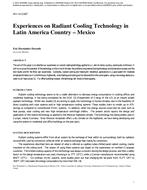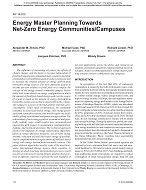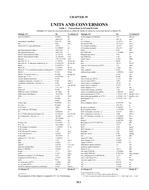Discusses the application of the response-coefficient method to one-dimensional transient heat conduction problems in composite cylindrical and spherical structures (solid or hollow) with time-dependent boundary conditions (specified surface temperature, specified surface heat flux, and specified ambient temperature). Each material in the composite structure can have a different thermal conductivity, density, specific heat, thickness, and energy generation rate per unit volume. Required outputs are related to current and previous inputs as well as previously computed outputs through a set of response coefficients. There is no instability problem inherent in the method. The total number of response coefficients depends on the selected time interval. The sensitivity of this number to the time interval used is illustrated in an example. The method is more convenient than conventional techniques, especially if the solution is desired for long times or for many different input histories.
KEYWORDS: spheres, cylinders, heat flow, temperature, surface temperature, ambient temperature, coefficient of conductivity, calculating, transient, thermal conductivity, density, specific heat, thickness
Citation: ASHRAE Transactions, vol.97, pt. 2, Indianapolis, IN 1991
Product Details
- Published:
- 1991
- Number of Pages:
- 5
- File Size:
- 1 file , 650 KB
- Product Code(s):
- D-17940


